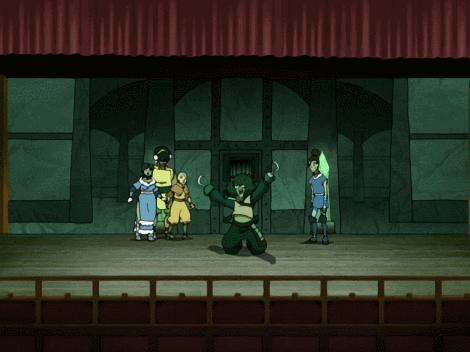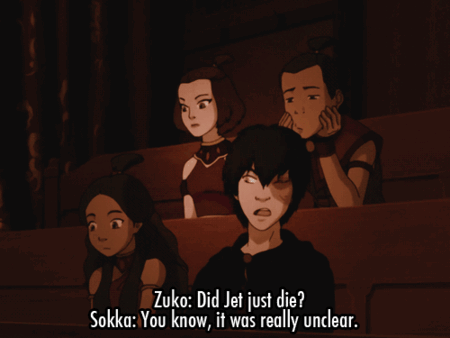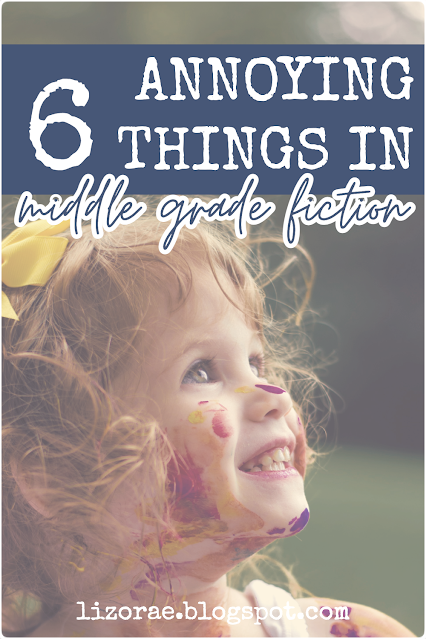6 Annoying Things Authors Do In MG Fiction
Even though I'm not 7-13, I still love MG fiction. It's something that's stayed with me since I was 7-13ish. And even *cough* years later, the things that irked me back then still irks me now.
If you're not sure someone will understand you, you'd want to make it as clear as P-O-S-S-I-B-L-E. Right? Don't get me wrong, it's a perfectly logical way to go. But you wouldn't spell every single thing out.
For some reason, I never thought to make a post about this until I came across this quote by Madeleine L'Engle.
“You have to write the book that wants to be written. And if the book will be too difficult for grown-ups, then you write it for children.” ― Madeleine L'Engle
Because of this, I'm counting this as a TQM post, even if it's not how I usually run with the quote picking.
If you're writing fiction for kids, specifically MG fiction, this post is for you. Don't do these six things or you're sure to annoy your young readers.
1. Spelling everything out.
 |
| Source: Giphy |
Yet many MG authors spell everything out. It's not "a tear rolled down their cheek" but "a tear rolled down their cheek because they were sad". It's not "they clenched their fist" but "they were angry and clenched their fist".
Doesn't that look like a show don't tell fault? Just because you're writing for kids, that doesn't mean they don't understand what you're trying to say. If you've already set up who the bad guy is, you don't need to reiterate that they do bad things because they're the bad guys.
Most kids will understand when you heavily imply something. Or even not-so-heavily and a-little-less-than-obvious something. Of course, you'll come across some kids who won't understand. But there's always going to be an exception regardless of the age.
2. Dumbing everything down.
This one is similar to Point One. Just because kids are young doesn't mean they're dumb. If you see some of the things kids know nowadays... *shakes head*
You don't need to explain that jumping over the waterfall is dangerous but the only way to escape the bad guys racing toward them. You don't need to make the villain purely bad just to cater for the innocence and narrow-minded view of children.
Because not all kids are as innocent or as narrow-minded as you think. In fact, it's better to show complexity in characters. If that's how it is in real life, why not prepare the future generation for it? In moderation, of course, and considering your TA's age.
3. Not exploring deep topics.
Remember that moment in Avatar: The Last Airbender where Jet died? Or maybe not died?
 |
| Source; Tumblr |
 |
| Source: Tumblr |
Yeah, that moment.
I'm not blaming the Avatar team for the ambiguity because I know it's Nickelodeon's fault it was "really unclear".
For some reason, authors who write for MG readers are touchy about confronting death, racism, sexism, etc. Believe me, there's no reason to be afraid. With the internet at kids' fingertips, they're exposed to all these worldly issues. Seriously guys, I witnessed seven year olds arguing about overseas politics.
Especially with death, you don't need to be afraid of exploring themes surrounding death. Like grief. Like living through tough times. Like moving on.
Kids will read books like these. A lot of them enjoy books that have some tough content in them. If you need proof, take my past self for example, who read Little Women over Weirdo. (We'll pretend the latter book was published when I was 7.) Most of my middle grade friends were like minded.
Be brave my authory friend, be brave.
4. Antiquated writing.
Something you must not do it write with antiquated language. In other words, don't write old-fashioned. Lots of kids, especially with younger kids, don't have much patience for reading books over their comfort level.
Defining what the comfort level is depends on the kid and the century your TA comes from. It's a good question that you can't really answer until you actually do it.
Some things you definitely won't want to do is use "by Jove" or "golly". Even more modern ones like "yeet" or bottle flipping are considered old.
Pop culture moves fast.
5. Adult-like main characters.
When you're writing for kids, your main character too should be a kid. And your child MC should act their age. My past self never related well to adult characters in MG fiction. It was also really weird to see kids behaving in such mature ways.
As an INFJ, you could say I was pretty mature in my youth. *fists chest with distant look* But yeah, don't have your main character sound like a professor or be that dark, edgy dude YA fiction likes.
Tween readers are still developing. In fact, I'd say it is in their tween years where most of the developments take place. The point is, what appeals to your adultiness might not appeal to your kid audience.
I like illustrating this tip with Disney songs. Specifically the love songs between the princess and their prince. Many kids will skip these emotional, moving duet many adults will cry over.
Your story doesn't need to contain elements YA readers love. Take a new favourite webcomic of mine, Kids Are All Right. The characters are accurate representations of what kids are like. Even though they don't have emotional outbursts like teenage couples or dramatically cry over their dead loved ones, it still portrays emotions in a way kids like.
6. Mature content.
For all the intelligence and worldliness of kids, don't go overboard with your content. Death? Sure. But don't make it gory. A couple? Don't do...that.
They're still kids after all. There are some things they don't need to know yet. Some things they don't need to see.
Need I say more?

Comments
Post a Comment